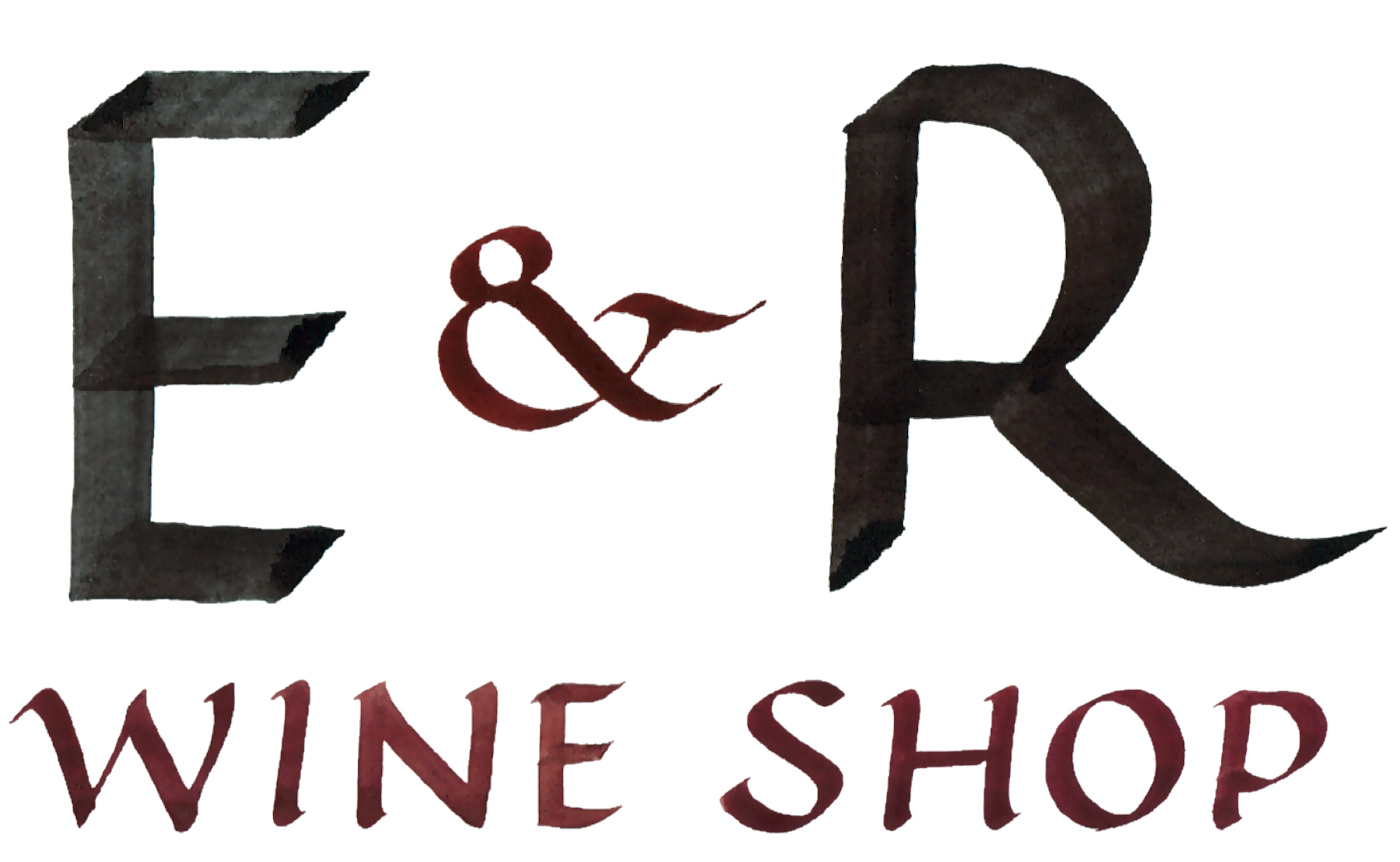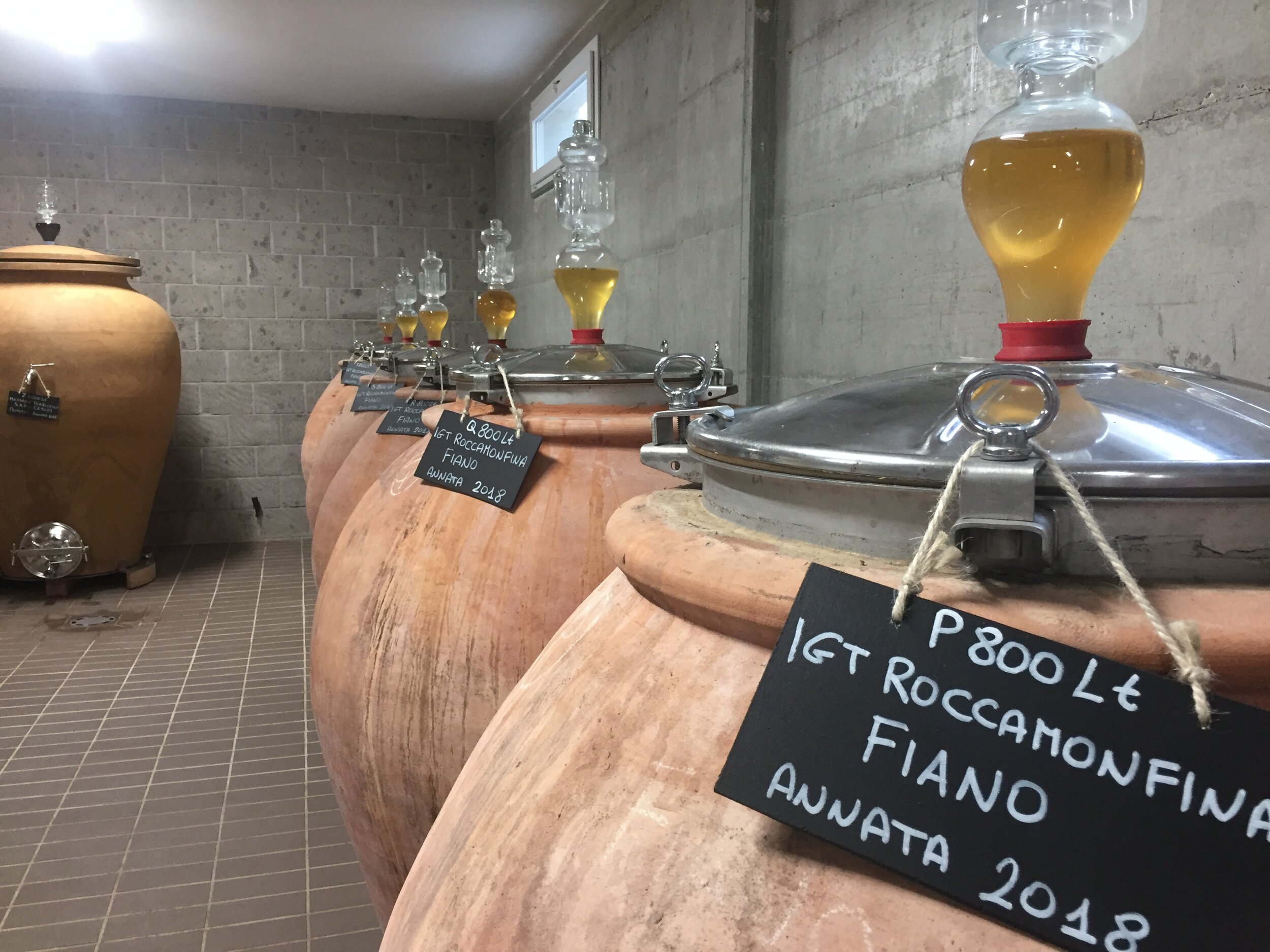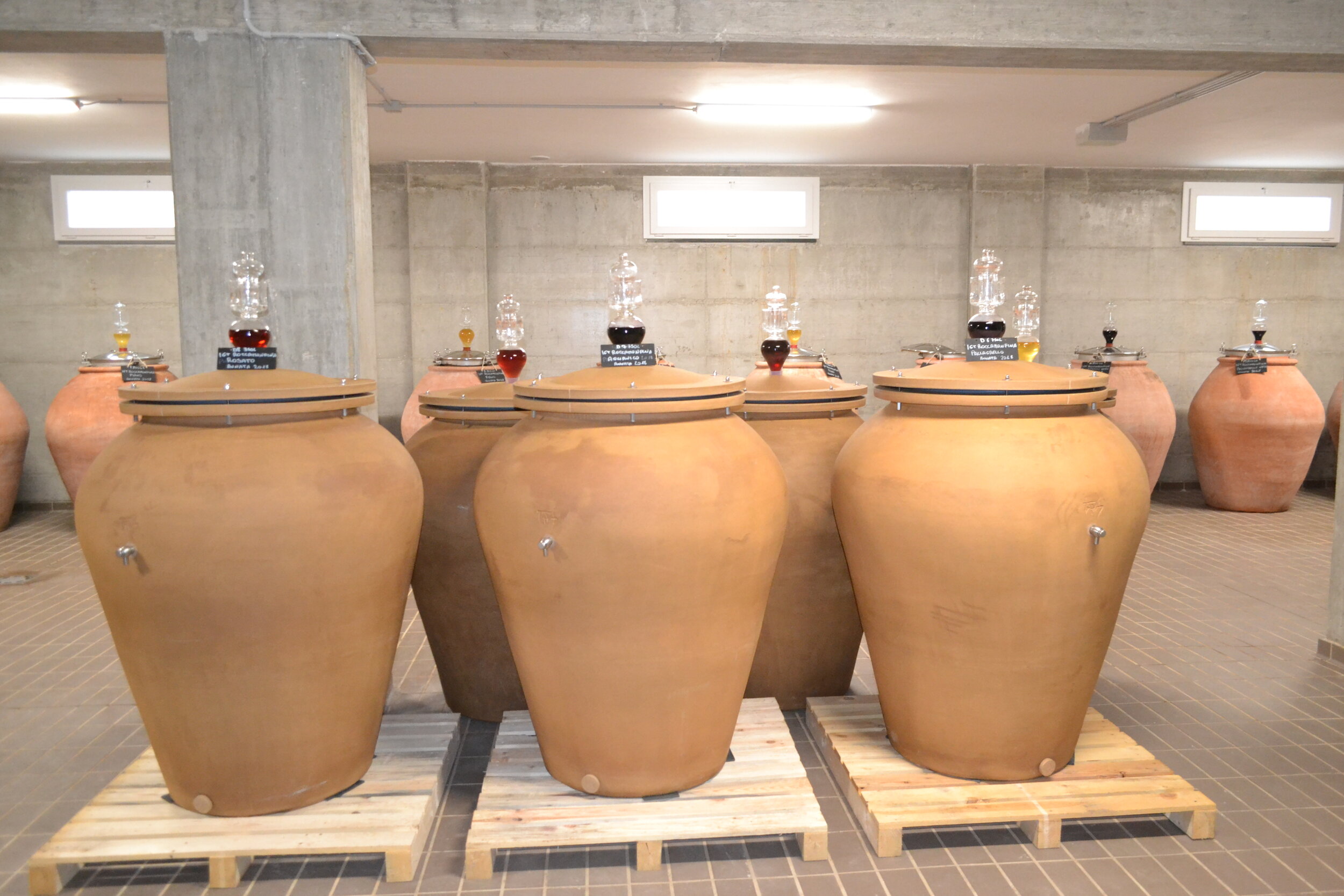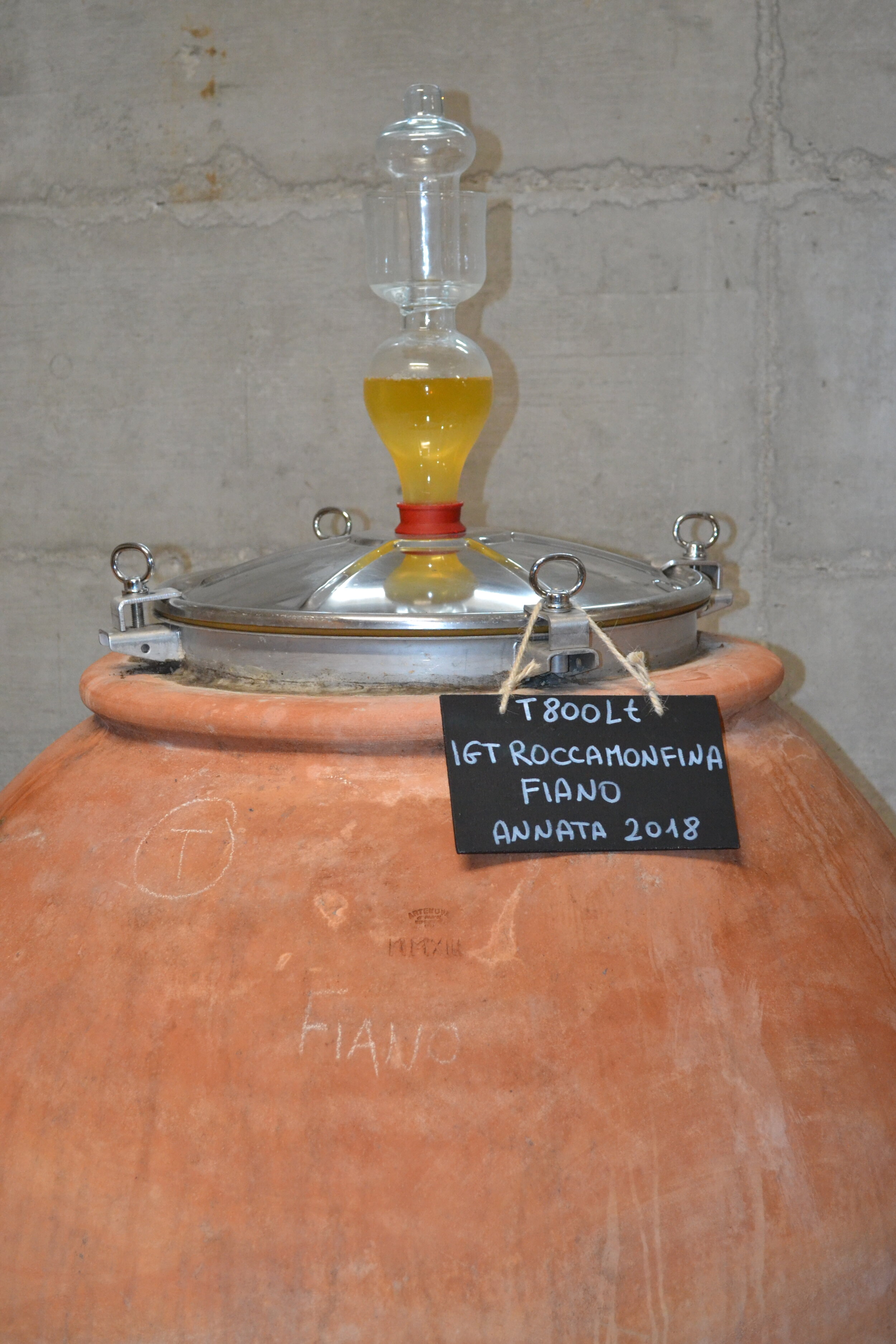I Cacciagalli - Campania, Italy
I Caggiagalli’s Mario talking wine.
After spending the better part of a week in Campania not long ago, we came away in awe of the remarkable diversity of terroir and grapes present in the area. Along with this diversity, we noted improvements in Campanian winemaking since our first visit there some twenty-five years ago. As an example, back around then, we were among only five Americans to have ever visited the now truly renowned Fattoria Galardi (aka "Terra di Lavoro") in Campania's Roccamonfina zone. The world class quality of that wine left us near speechless to ponder the awe-inspiring potential of that then largely undiscovered region. All these years later, most tasters who can afford that wine ($100 per bottle +/-) are in the same boat knowing it's an awesome taste experience.
Yes, there were some other good wines then too, but it was more Taurasi for red, and generic grape names for whites, such as Fiano and Greco. A notion of place and terroir had yet to emerge as part of the normal vocabulary for these wines then, at least in the USA. How the times have changed!
We're pretty thrilled to have carefully explored Campania for ourselves and are honored to have been working now for years with owners/winemakers Diana and Mario's "I Cacciagalli" wines - the hallmark of their wines is pristine clarity and purity...
(I Caciagialli is located near Sessa Arcuna - toward top left of map above.) (The look of the volcanic topsoil near the winery.)
CASERTA AND THAT OLD VOLCANO
Early Roman Kings called the area "campania felix"- the fertile countryside, and indeed it is. The Campanian fertile countryside soil provides prolific farming potential; indeed making wine has been ongoing there for eons. A criss-cross of any twenty miles in the region quickly exposes you to this reality: Campania is wildly diverse and of formidable potential. These days it feels artisanal wine production is at the start of a true golden age.
Though their prices are only a fraction, I Cacciagalli's wines hail from Caserta's Terra di Lavoro region- the very same zone as Fattoria Galardi in northwest Campania. The extinct (so they think) volcano of Roccamonfina and its wide influence on the soil over the millennia dominates the wines of the zone in sharing its unique character with a lovely aspect impacting the I Cacciagalli wines. You cannot make wines like these anywhere else we know of. The local terroir of I Cacciagalli's geology is the key factor separating these wines from of all of the rest of Campania's wines using the same grapes- Falanghina, Piedirosso, Pallagrello Nero and Aglianico.
i Cacciagalli's home vineyard.
FILOSOFIA DI TERRENO
"the wine tells the way, not the man”
-Mario
It's virtually a given: the most exquisite wines we know are always "ground grounded"; that is, the greatest potential any self-respecting grape bound for vinous glory can hope for begins with the land and the care of its vines. Then there's the people; those who work the land. Some levels of connectivity to the land go far deeper than others...
Dianna Innaccone's farm and land roots go way back- she is quite literally well-grounded, as her father and grandfather and great grandfather and so on, have each lived and farmed the very land she and Mario harvest grapes from today. As she explained to me, the I Cacciagalli name goes back to pre-1600 when their farm was so named from historical local maps indicating an infamous "rooster battle" took place there where no doubt many feathers flew. She well remembers seemingly always being in the fields and spending time there with her father and grandfather- "I used to go to there with him my papa"- and of playing greengrocer with her brothers "and collecting the tomatoes, aubergines and courgettes and pretending to sell them." It's a good bet her very real and palpable connectivity to her place IS translated to the wines she makes. Quality, character and individuality are infrequently produced by chance.
From a recent visit.
While they have about 25 acres, only six are vineyard land, thus production is carefully managed and output is small. Dianna and Marco love their land, vines and wine. They treat all the related elements of their wines with respect- as if family. Their literally hand-crafted production from red-hued soils, places the highest importance in organic farming and bio-dynamic practices. For example, they do not filter their wines. Most of their wines are made in terracotta ("anfora"- their spelling) to allow each wine to breathe, and to not be subjected to —as they describe — the toughness of stainless steel and the difficulty they face in breathing in wooden vessels. These conclusions come from Dianna and Mario's personally tried wine making there over previous vintages. (I agree. I've tasted the wines prior to their introduction to anfora and to my taste, these are steps up in very enjoyable ways.) As Mario told me back in May in his cellar "anfora allows for less tannic wines, they can relax more in the terracotta than in wood or inside steel, it is less aggressive and we can keep the juice on the skins longer- drawing out more complexity, and we get no reduction." In addition, the use of the anfora is the ancestral vessel native to this region in the same way that their pallagrello nero is native. The Lombardian kings who ruled over this region suppressed the use of anfora in favor of the
RAMBLE ON:
EXPECTATIONS & TASTE
If you've been following us at E&R for a while, you know for wines we want to drink, we personally value purity, expression, individuality and finesse. Usually, well made wines not influenced by elements outside the regular processes of great farming (anyone can grow crappy tomatoes: try growing a perfect one) and minimal intervention in the cellar- flat out taste better to us, while also providing more drinking enjoyment.
Within the popularity machine of wine ratings, comparative tastings or quick sips without reflection (not criticizing that), our personally preferred wines perhaps fall a notch by that wayside and those barometers. At the same time, if one is spending even a little time in really tasting, the rewards are like reading a great book, or not just passing by that Renoir on the terrace.
The I Cacciagalli wines here are lovely, true wines offering exceptional value in price. We have found that every one of these wines need time "open" before drinking them. This helps bring out their best qualities. Each of these wines were better: more fleshy, more flavorful, more complete, on the second day than the first.
(E)
LET US GO TO THE CELLAR FOR THOUGHT PROVOKING WINES
Click on each wine for more detail.









